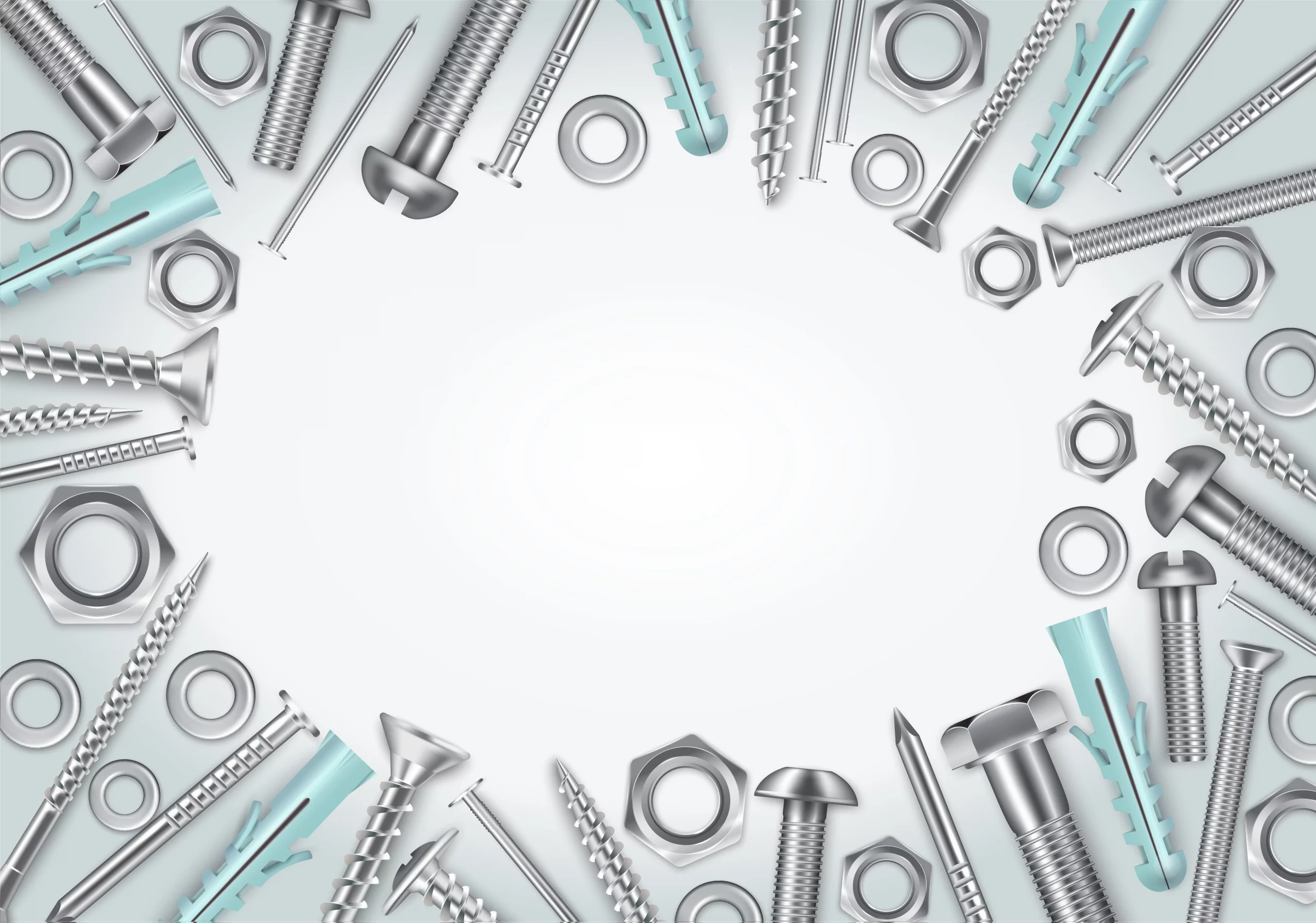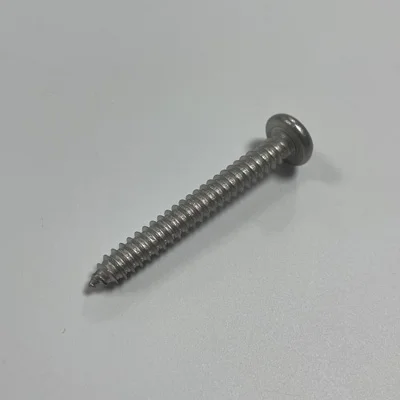caTEGORIES
Tags
Choosing the Right Screws to Prevent Material Damage During Installation

Posted: June 05, 2025
Categories: News
Tags: Company,news,Costs,EU
Picking the proper screw is a basic but frequently ignored part of building and making things. It greatly affects how strong, stable, and long-lasting the result will be. The wrong screw can cause ruined threads, rust from mixing metals, or even dangerous breaks. The right one ensures strength, effectiveness, and safety. This guide looks at key points that decide how well screws work—like matching materials, thread type, protective layers, and how they’re put in. It also covers usual problems and fixes. Whether working with wood, metal, or plastic, knowing these ideas helps avoid harm and makes fasteners more dependable. It also shares expert methods, like spreading weight and stopping rust, plus advice from top makers like QEWITCO FASTENERS CO., LTD., to help workers choose wisely.
Why Is Screw Selection Critical?
What Factors Affect Screw Performance?
How screws perform relies on many details. These include whether materials work together, thread shape, and surrounding conditions. The screw’s substance should suit what it’s going into. For instance, stainless steel screws resist water damage, making them perfect for wet places. Brass screws fit better where rust isn’t a worry. Thread pattern matters too. Wide threads grip soft stuff like wood well. Narrow threads hold tighter in hard materials like metal.
What Are the Risks of Improper Screw Use?
Picking incorrect screws can badly hurt materials. Turning screws too tight might ruin threads or break fragile items like plastic. Using screws made from clashing metals can cause rust when wet. Choosing suitable screws keeps things strong and stops breakdowns.
Which Screws Should You Use for Specific Applications?
How Do Wood, Metal, and Plastic Screws Differ?
Wood screws usually have wide threads that catch well in soft grain. Metal screws often have close threads and sometimes can tap their own holes in tough surfaces. Plastic screws tend to be light and made from special stuff that stops cracking or bending.
Are Specialty Screws Necessary for Certain Materials?
Why Choose Self-Tapping Screws for Thin Materials?
Self-tapping screws work great for thin sheets of metal or light plastics. They make their own threads as they go in, saving time and effort.
When Should You Use Countersunk Screws?
Countersunk screws fit best when you need a smooth surface. Their flat tops sit even with or below the material, looking neat and preventing catches.
How Can You Select the Right Screw?
What Role Does Material Compatibility Play?
Making sure screw and surface materials get along is key for a tight hold and stopping rust. For example, stainless steel screws with aluminum parts lower rust risks outside.
How Does Thread Design Impact Material Integrity?
Coarse vs. Fine Threads: Which Is Better?
Coarse threads provide better grip in softer materials like wood, while fine threads offer superior holding power in harder substrates like metal. The choice depends on the application requirements.
Why Opt for Self-Drilling Threads?
Self-drilling threads cut down on work stress by skipping pre-drilling. This helps most in big factory jobs where speed counts.
How Do Length and Diameter Influence Performance?
Picking the right length and thickness stops going too deep, which might weaken or split materials. Always match screw sizes to how thick the piece is.
What Techniques Minimize Material Damage During Installation?
When Is Pre-Drilling Necessary?
Pre-drilling is essential when working with brittle materials or when precision is critical. It reduces stress on the substrate and ensures proper alignment of the screw.
How Do You Control Torque Effectively?
Using tools with adjustable torque settings prevents over-tightening, which can strip threads or damage the material surface. Proper torque control ensures a secure fit without compromising integrity.
For those seeking premium fasteners tailored to specific needs, QEWITCO FASTENERS CO., LTD offers an extensive range of products including self-tapping screws and countersunk options. With ISO 9001-certified quality assurance and bespoke solutions available, their expertise ensures you find exactly what you need for your project.
Recommendations for QEWIT Products in Various Applications
Features of QEWIT Screws Designed to Protect Materials
When choosing screws, guarding the work piece is vital. Screws made with exact threads and suited materials lower harm risk. For example, wide-thread screws fit wood best, holding fibers without splitting. Close-thread screws work better for tough metals needing power and precision. Choices like stainless steel, brass, and mixed metals adjust to various places and surfaces.
Coatings and Treatments Offered by QEWIT for Durability and Compatibility
To ensure longevity and compatibility, coatings play an essential role in screw performance. Zinc plating or hot-dipped galvanization provides exceptional corrosion resistance, making them suitable for outdoor or moisture-prone environments. For example, products like Hexagon Head Bolts DIN 931 feature finishes such as Bright Zinc Plate (BZP) or HDG to enhance durability. These treatments not only extend the lifespan of fasteners but also prevent reactions that could compromise structural integrity.
Advanced Practices for Ensuring Safe Installation with Screws
Using Washers and Spacers to Distribute Load Evenly
Washers and spacers are must-haves for even weight sharing when installing. Putting a washer between the screw head and material lowers focused stress that might bend or crack. Flat Round Washers DIN 125A work great because they’re hard (140HV or more) and resist rust with zinc coats. This easy step gives a firm hold while keeping materials whole.
The Role of Lubricants in Reducing Friction and Heat Build-Up
Friction while screwing can create heat, possibly hurting both fastener and material. Using greases lessens this by easing thread rubbing. This makes installation smoother and reduces wear on tools. In busy factories with many installs, greases become even more important to stay quick and avoid early breaks.
Evaluating the Quality of Installed Screws Over Time
Signs of Material Stress or Failure Post-Installation
Regular checks are crucial for long-term joint trust. Watch for rust, stripped threads, or cracks—these show possible troubles that may weaken structures. For example, using screws that can’t resist rust outside may lead to corrosion over time. Fixing these signs fast stops bigger fails later.
Maintenance Tips to Prolong the Lifespan of Fastened Joints
Smart upkeep stretches joint life. Tightening screws now and then stops shakes or weather from loosening them. Changing old washers or adding rust treatments also helps durability. Choosing high-grade fasteners with ISO 9001 approval guarantees steady performance.
For pros needing reliable fasteners for all jobs, QEWITCO FASTENERS CO., LTD gives full product lines with strict quality checks.
FAQ
Q1: How do coatings like zinc plating improve screw performance?
A: Coatings such as zinc plating enhance corrosion resistance, making screws suitable for harsh environments while extending their lifespan.
Q2: What is the benefit of using washers during screw installation?
A: Washers distribute load evenly, reducing stress on the material and preventing deformation or cracking.
Q3: How often should I inspect installed screws?
A: Regular inspections should be conducted based on environmental conditions—more frequently in corrosive or high-vibration settings—to identify potential issues early.


